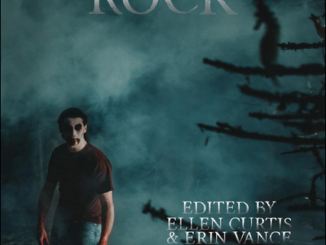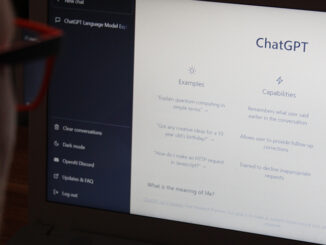The New Voices Showcase at the A.C. Hunter Library on Feb. 24 invites local authors to present work in their own languages.

Madison Ryan
Kicker
For authors like Juliana Koen Alonso, storytelling spans beyond the borders of culture and language.
A daughter of Argentinian immigrants, Alonso says she sometimes feels out of place in a province where the literature is saturated in its own distinct culture. There are a thousand stories in her head – from distant fantasy worlds to the streets of Buenos Aires – yet it’s hard to find a place where her stories fit in.
“If we just listen to each other more, and we try to relate to each other’s stories in more of a less specific way, then we may get more out of them,” she said. “We need to be open to things not being done the way they’ve been taught to be done.”
When Alonso was invited to an upcoming event to read a short story in Rioplatense (a dialect prominently used in Argentina) Spanish, she was challenged to fill in the missing pieces between English and her first language.
Alonso writes the majority of her stories in English, so she took a fictionalised account of her mother’s experience in military-occupied Argentina and transformed it into something new.
“Due to the subject matter, I really wanted to put it into Spanish,” said Alonso. “I took it upon myself not to translate it – I just rewrote the whole story, emphasizing what felt right and what to change.
“There are some phrases that I try to translate into English … and you can’t find the right words. If you think about that same situation in Spanish, and you can say it in Spanish, then it comes out naturally.”
The complications of translation is something Flanker Press publisher Jerry Cranford has spent some time thinking about, as well. He says emotion and wit is often – quite literally – lost in translation, and the author’s specific style becomes that of the translator, in some cases.
“The structure of stories, the way things are said, the way punctuation is used, the way sentences are structured, they’re all being taught mostly through a white, North American, English-speaking lens.”
– Juliana Koen Alonso
Still, Crandford says, it’s important that Newfoundlanders of any background read stories from different perspectives.
“Learning about other cultures is always a bonus, it helps us flesh out our understanding of the human experience,” said Cranford. “(Flanker’s) reason for being is to preserve our own culture, our own history, our own heritage, and that includes other cultures and heritages that live alongside us.”
For Alonso, she says that bridging between cultures would look like giving credit where credit is due when it comes to unique literary tools, for example.
“The structure of stories, the way things are said, the way punctuation is used, the way sentences are structured, they’re all being taught mostly through a white, North American, English-speaking lens,” said Alonso.
It’s something she’d like to see changed in the province’s post-secondary institutions.
Cranford says publishers hold a certain responsibility to preserve history and culture, such as with the work of Indigenous authors and languages. He says one book that was published with this sentiment in mind was Angutiup ânguanga / Anguti’s Amulet, a bilingual children’s book. Each English paragraph is followed by its Inuktitut counterpart.
“In that case, nothing is lost,” said Cranford.
One of Alonso’s favourite literary tools is a braided storyline, which she says is very common in Latin stories.
“You have a bunch of stories that intersect in and out,” said Alonso. “They may be related to each other in the end, they may not, but they’re parallel to each other. They’re all happening at the same time, and they’re weaving together. They don’t necessarily come to the same end.”
Much like those stories, Alonso says her intersecting identities weave together to create a backdrop for many of her stories, carving out a small corner of Newfoundland and Labrador’s literary world for herself.




Be the first to comment